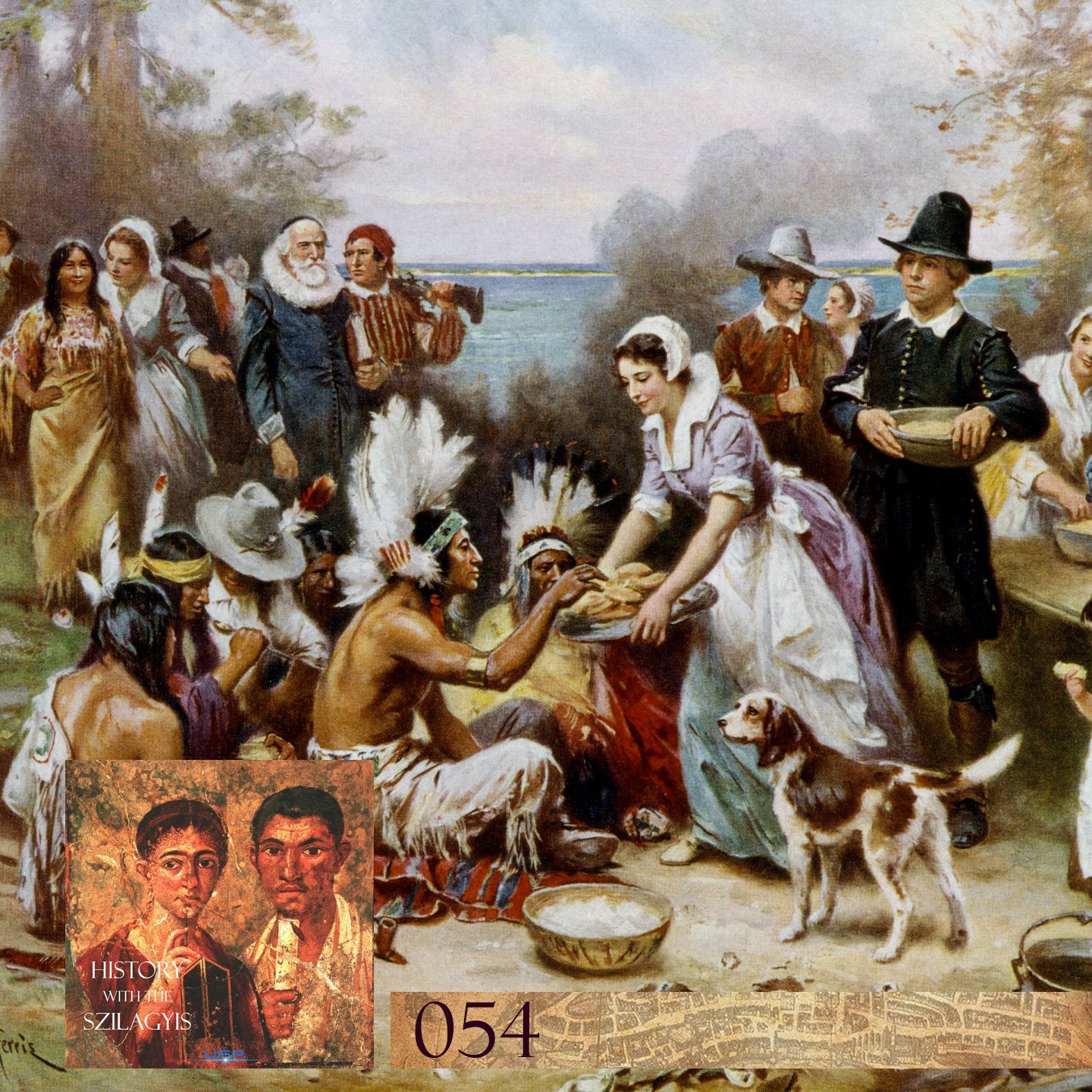Thanksgiving
-Chrissie
Listen here: https://www.spreaker.com/episode/hwts-054-thanksgiving--47645914
American Thanksgiving is one of the most important holidays in the country’s civic calendar, equal to the Fourth of July in commemorating the origins of the United States. Because it looms so large, it seems as though the fourth Thursday in November 1620 was the exact day of the “First Thanksgiving” and so it has been celebrated every year since, but the association between this holiday and the Mayflower colonists did not come about until the mid-nineteenth century. The idea of a thanksgiving, of setting aside a day to express gratitude and appreciation, was a long tradition before the Pilgrims even existed, and could be called for any reason at any time of year. Having said that, the association between harvest festivals, in which American Thanksgiving has its origins, are found in nearly all agricultural societies. The native tribes of the Americas certainly held such days of thanksgiving, whether their method of procuring food was farming, hunting and gathering, or both.
The earliest commemorations of Thanksgiving in the United States were declared by the Continental Congress, to celebrate important victories in the Revolution. These were announced by proclamations published in newspapers and posted on town boards. In these, it was recommended that work and entertainments be postponed while people used the day as a solemn occasion to praise God. Such days were often treated like the Sabbath, including religious services. As President, George Washington declared two days of thanksgiving, on 26 November 1789 and 19 February 1795. The tradition was continued irregularly into the middle of the Nineteenth Century. States and local governments also made proclamations for days of thanksgiving and prayer; by 1860, thirty of the states and three territories had set aside an annual day of thanksgiving, though not all on the same day.
Sarah Josepha Hale gets credit for pushing to make Thanksgiving a national holiday. Her letter-writing campaign, directed at any and all government officials from the President to state and territorial governors began in 1846. It was accompanied by books and pamphlets on the subject, explaining its potential value as a means to encourage good morals among the American citizenry. It was her editorials that convinced President Abraham Lincoln to proclaim an annual national holiday of Thanksgiving, to be celebrated on the last Thursday in November. In 1870, President Ulysses S. Grant signed the Holidays Act, which made Christmas, New Year’s Day, July Fourth, and Thanksgiving federal holidays in the city of Washington, D.C. only. Fifteen years later, it was expanded as a paid holiday to all federal employees throughout the nation.
The day on which Thanksgiving was celebrated became a political issue during the presidency of Franklin Delano Roosevelt. At this time, the Christmas shopping season was strictly held to begin after Thanksgiving; it was considered improper to advertise Christmas sales any earlier. The question came in 1939, a year in which November had five Thursdays instead of four: should Thanksgiving be held on the fourth or last Thursday? FDR made a point of declaring the fourth Thursday as Thanksgiving, supposedly on the advice of Fred Lazarus, Jr., the founder of Macy’s Department Stores, with the idea of expanding the holiday shopping season. People’s opinion on the matter seemed to be dictated by their political views: those who didn’t like FDR claimed he was maligning the memory of President Lincoln and refused to move their celebration. Whether any given state recognized the move was dictated by the political makeup of their government: 23 states followed the federal date of 23 November, 22 held it the following week on the 30th. The same issue occurred the next two years, which also had five-week Novembers, with similarly partisan results. The issue was decided in 1941 by a joint Congressional Resolution that set Thanksgiving on the last Thursday of the month, but with an amendment that it was to be celebrated on the fourth Thursday in the years in which November had five weeks. This became law with FDR’s signature on 26 December 1941, but some states still held it on the last Thursday into the mid-1950s.
In the last few decades, the phenomenon of “Christmas Creep” has, in many people’s minds, caused Thanksgiving to become nothing more than the day before Black Friday. This has been especially difficult on retail and service workers, many of whom have lost one of the few days they could count on not having to work as more and more retailers choose to open their doors for the after-dinner crowd on Thanksgiving Day. We at History with the Szilagyis don’t generally add advice to our episodes, but our many, many years working retail demand we remind you that it costs nothing to be kind to retail and service workers and understanding of the madhouse in which they find themselves at this time of year. And, if you’re one of those workers, remember that if people are impatient and rude, it’s a reflection on them, not you.
